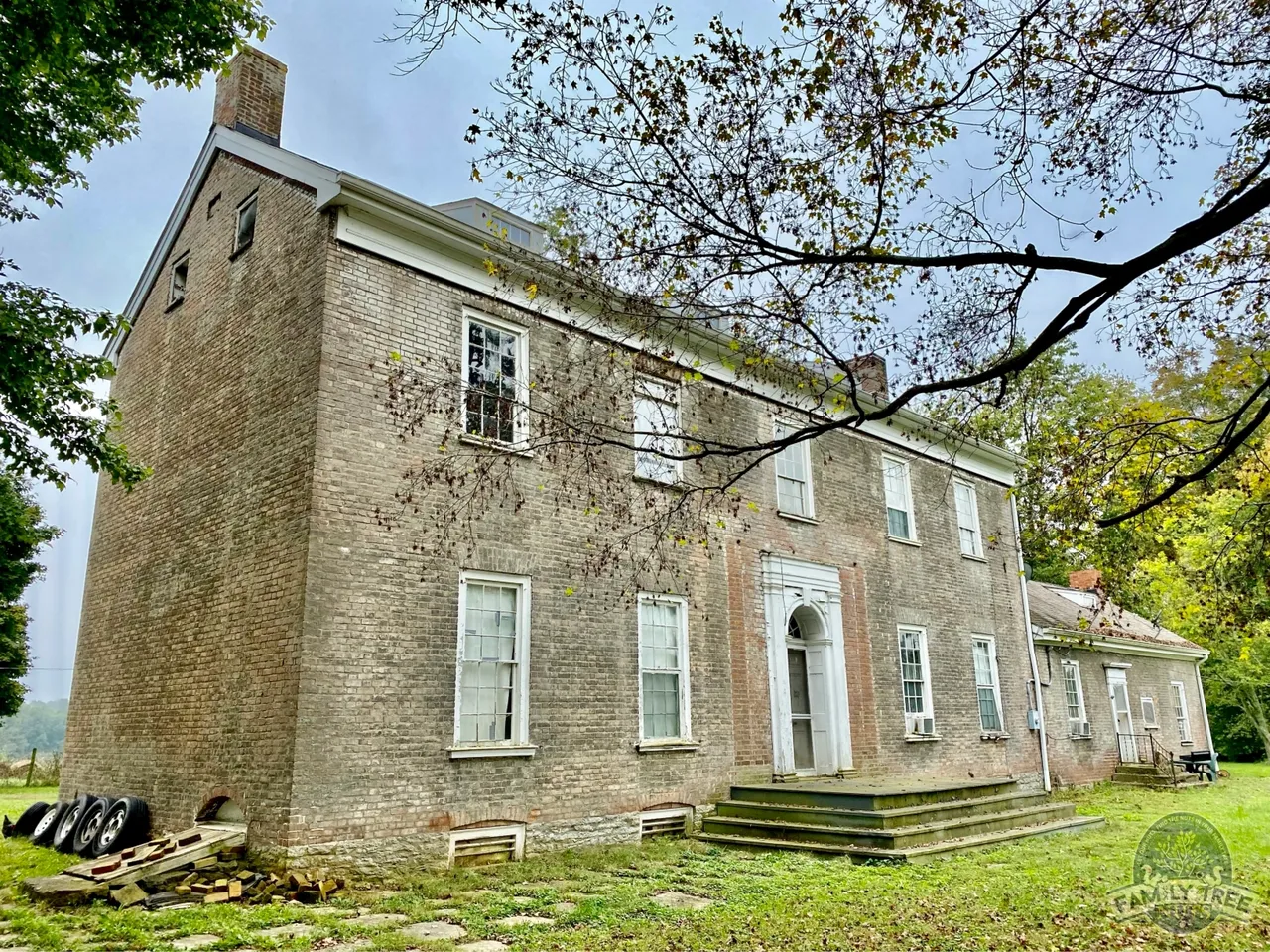
FLAT BOAT INVENTOR, JACOB YODER HOME
Few things had more of an impact on the growth of the young United States that the flat boat, which brought pioneers and trade all through the early American west. Just outside of Taylorsville, Spencer County, Kentucky, stands the home called, “Vaucluse”, which was the house was built by Jacob Yoder, the man who invented the iconic flat boat, and the first entrepreneur to take a load of goods down the Ohio and Mississippi Rivers, on a flat boat, from Pennsylvania, to New Orleans for a profit.
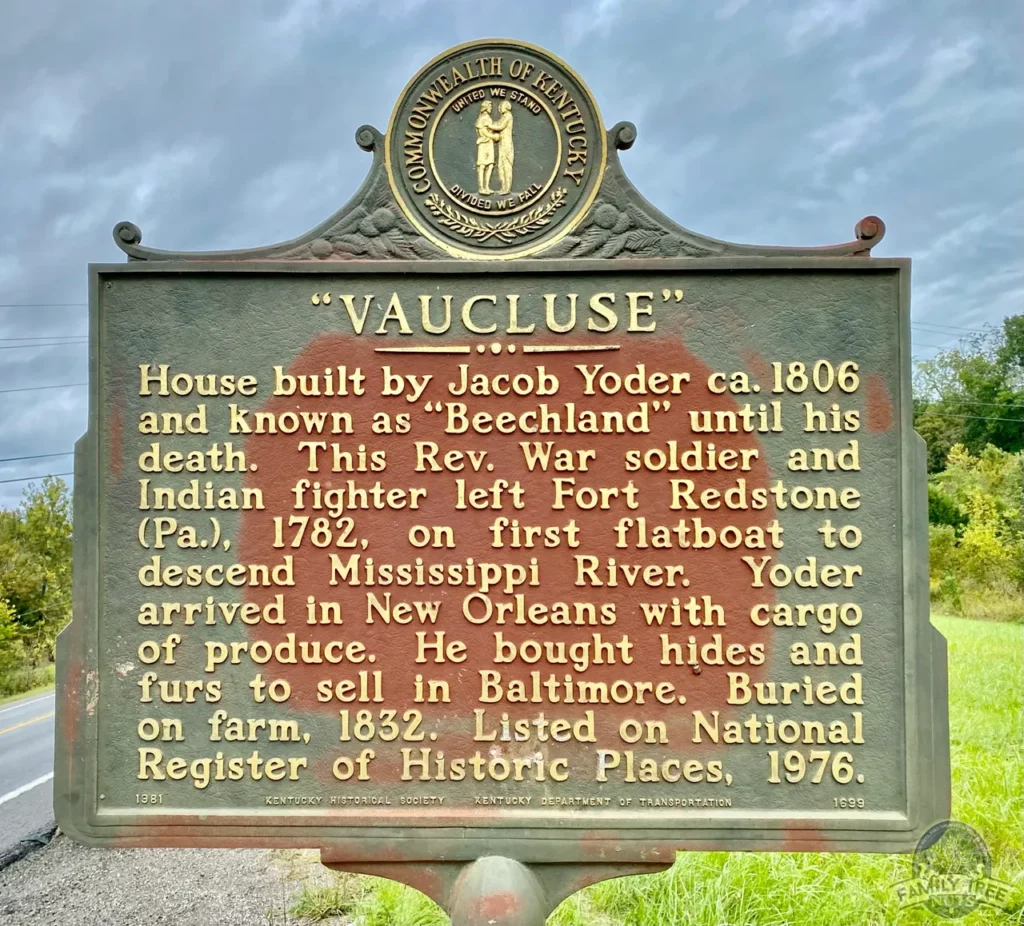
The historic home Vaucluse was built by Jacob Yoder, in 1806 and was first named “Beechland”, until the death of Yoder. It is a 13-room house that was built from bricks that were made on the premises. The house had an outdoor kitchen, a blacksmith shop, and a springhouse, it was quite a large operation at one time. In 1976, Vaucluse was listed on the National Register of Historic Places. At the time of this article, in 2022, the structures outside of the house were somewhat in ruins, but are still standing.
Jacob Yoder was of Swiss descent and was born August 11, 1758, in Reading Pennsylvania. He was an American Revolutionary War soldier and also an Indian fighter. In 1782, he did the thing that he’s most famous for, he left Fort Redstone Pennsylvania, which is now Brownsville, Pennsylvania, and descended on the first flat boat, down the Ohio and the Mississippi Rivers, carrying a cargo produce, making him the first person to bring products to market from Pennsylvania to New Orleans. It is said that he was the inventor of the flat boat, which had such an impact on the economy and formation of the country. A flat boat is a barge that has a cabin built on top that was used for shelter and protection from the Indian attacks. A typical flat boat was about 12 feet wide and 50 feet long. Once the flat boat reached its destination, and its goods were sold, it was difficult to bring the boat back upstream, so it was disassembled and the lumber was sold to build houses in New Orleans. The owners then walked, or rode a horse back home. Imagine walking from New Orleans, back to Kentucky, or someplace else in the back country!
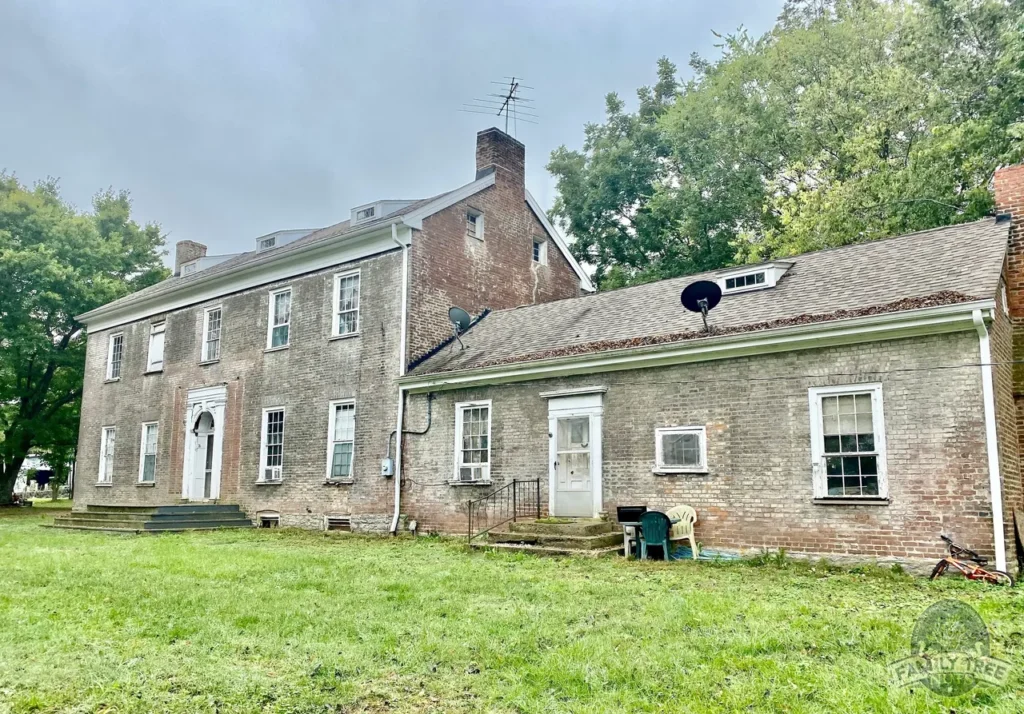
Unlike most of those who came after him, Jacob Yoder didn’t walk back. He sold his goods to a Spanish Commandant, and used his proceeds to buy furs and hides, and then took them by boat back east and sold them for quite a handsome profit. In 1785, like so many other people at the time, he moved to Kentucky, first settling in Bardstown, where he married Mary Mossman, and soon they moved to what is now known as Spencer County. Jacob lived on his farm for about 30 years until he died in 1832, and he is buried in the family cemetery on the property.
After Jacob died, the house stayed occupied by the family. Jacob and Mary had two daughters, Mary and Eliza. Mary married Nathan Brown, who was a Shelby County Circuit Judge, and Eliza married David Poignand. David and Eliza moved into the house after Jacob died and soon David decided to change the name of Beechland, to Vaucluse, for his home in France. After David and Eliza passed away, their son Yoder Poignand occupied the house. Yoder Poignand gave land for the Taylorsville school, and the school carried his name for many years. The original school building is now gone, but the land is still occupied by the Spencer County alternative school.
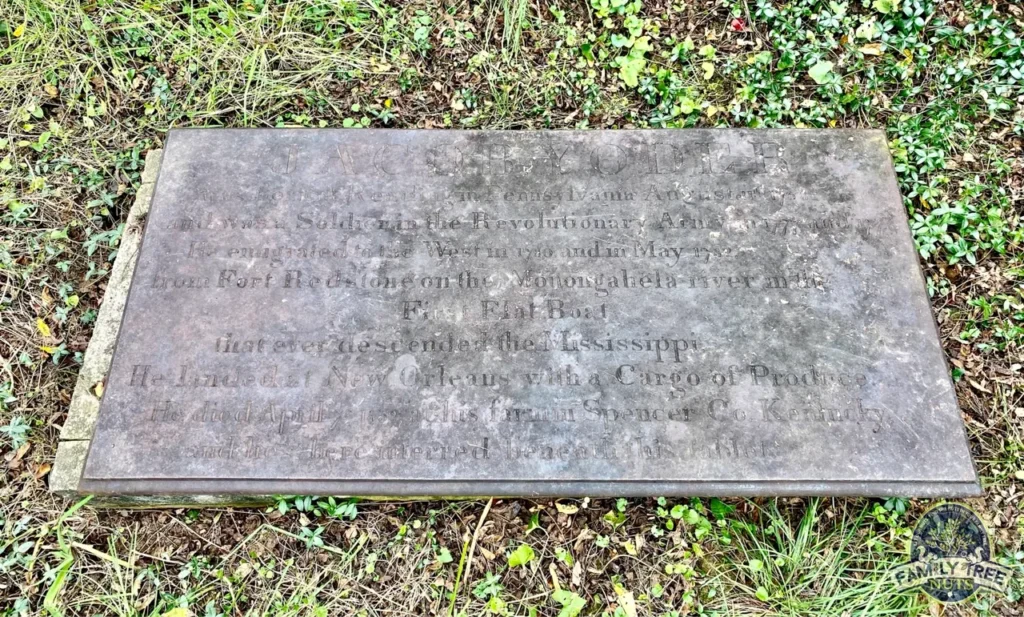
After Yoder Poignand died, the house was occupied by his first cousin, Knox Brown, Sr., who was the son of Nathan and Mary Yoder-Brown, the other daughter of Jacob Yoder. Knox, Sr. lived in Vaucluse for quite some time, and after his death, the house passed to his son, Knox Brown, Jr. and his wife Marian Blackburn-Brown. Knox, Jr, and Marian lived at the house until their deaths, at which time the house passed to their two children, Joe Blackburn Brown, and Mary Jane Brown-Marcum, the great-great-grandchildren of Jacob Yoder.
The family cemetery is about 300 yards away from the house, with graves of many generations of family. Jacob Yoder’s grave is quite unique. Yoder’s friend, Captain Joseph Pierce, of Cincinnati, who circumnavigated the globe and explored American rivers, erected an iron tablet over the remains of his old friend, Captain Jacob Yoder. It was the first cast west of the Alleghenies. The inscription on the tablet says: “Jacob Yoder was born at Redding, Pennsylvania, August 11, 1758 and was a soldier of the Revolutionary Army in 1777 and 1778. He emigrated to the West in 1780, and in May 1782, from Fort Redstone on the Monongahela River, in the first flatboat that ever descended the Mississippi River. He landed in New Orleans with the cargo of produce. He died April 7, 1832 at his farm here in Spencer County, Kentucky, and lies here interred beneath the tablet”.
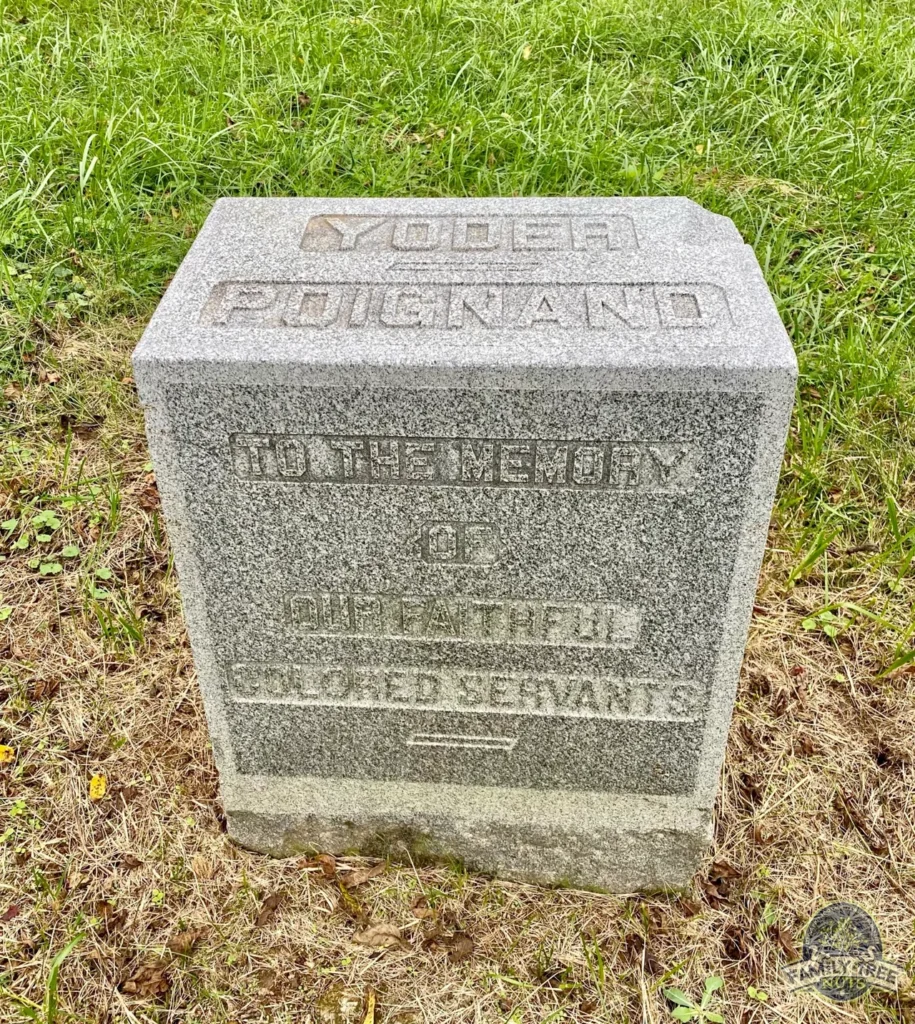
The cemetery is a beautiful place with a huge, thick stone wall all the way around it, and you have to go up and down stone steps very carefully to get to the graves. In addition to Jacob Yoder, you will find the graves of Mary Mossman-Yoder, Eliza Yoder-Poignand, David Poignand, Yoder Poignand, and many other family members. Something else that is quite unique about this cemetery, is just outside the wall on the hillside is a single marker that is inscribed “Dedicated in memory of our faithful servants, and the many enslaved persons who lived, worked, and died at Vaucluse”.
Vaucluse is one of the most historic spots in all of Spencer County, Kentucky, and one that few outside of the county are aware of. For over two centuries it has been the home of Jacob Yoder, and his descendants. Its cemetery contains the remains of the man who invented the flat boat, which forever changed America, and that is something worth remembering.
This article was written from the dialog between Col. Russ Carson, Jr., of Family Tree Nuts, and Bonnie Downs, of the Taylorsville/Spencer County Tourism Commission. Be sure to see the video taken in front of Vaucluse, at the link below.
– Col. Russ Carson, Jr., Founder, Family Tree Nuts
